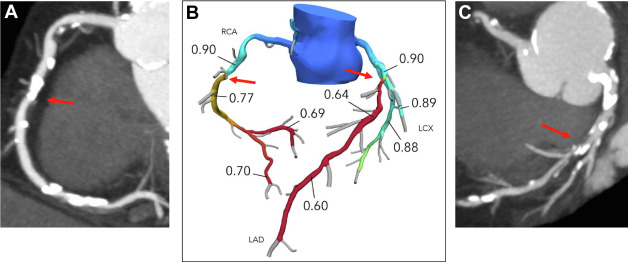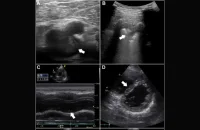Vascular surgery patients face not only the immediate challenges posed by their primary conditions but also the insidious threat of undiagnosed coronary artery disease (CAD), which can often be asymptomatic and therefore easily overlooked in preoperative assessments. However, recent research, published in the prestigious Journal of Vascular Surgery, illuminates a promising avenue for improving outcomes: the integration of computed tomography-based fractional flow reserve (FFR-CT) assessment alongside postoperative ischemia-targeted coronary revascularisation.
High Prevalence of Asymptomatic Coronary Ischemia in Vascular Surgery Patients
This groundbreaking study, spearheaded by Dr. Dainis K. Krievins and his esteemed colleagues, meticulously examined a cohort of 522 patients undergoing elective vascular surgeries, all of whom had no known CAD. Dividing the cohort into two groups, the researchers compared outcomes between those receiving FFR-CT-guided management and those following standard care protocols. Preoperative FFR-CT testing unveiled a startling revelation: a significant 65% of patients exhibited asymptomatic lesion-specific coronary ischemia, with 52% demonstrating severe ischemia. Following vascular procedures, a subset of 103 patients underwent elective ischemia-targeted coronary revascularisation.

Image Credit: Journal of Vascular Surgery
FFR-CT Guidance Reduces Adverse Events in Vascular Surgery Patients
The results at the five-year mark were nothing short of groundbreaking. Patients in the FFR-CT-guided group experienced substantially fewer adverse events compared to their counterparts receiving standard care. Notably, there was a remarkable 20% lower incidence of myocardial infarction (MI), a striking 27% lower incidence of major adverse cardiovascular events (MACEs), and a substantial 20% lower incidence of all-cause deaths. These findings underscore the potential of integrating FFR-CT assessment and targeted revascularisation to mitigate the risks associated with silent coronary ischemia in vascular surgery patients.
Advancing Postoperative Care for Vascular Surgery Patients
Despite the promising results, the study authors meticulously highlighted the current guidelines' limitations in addressing asymptomatic coronary ischemia in this patient population. They passionately advocated for a paradigm shift towards a more proactive approach to the diagnosis and treatment of CAD in vascular surgery patients. While acknowledging the study's limitations, including potential patient selection bias and its single-centre, non-randomized nature, the authors proposed that a strategy of postoperative diagnosis coupled with ischemia-targeted revascularisation could yield equally significant long-term benefits.
This seminal study underscores the transformative potential of FFR-CT assessment as a powerful tool in optimising postoperative outcomes for vascular surgery patients. By adeptly identifying and addressing silent coronary ischemia, clinicians can dramatically reduce the incidence of adverse cardiovascular events and significantly enhance long-term survival rates. Moving forward, the imperative lies in conducting prospective, randomised trials to further validate these groundbreaking findings and firmly establish FFR-CT assessment as an indispensable standard of care in the comprehensive management of CAD in vascular surgery patients. This heralds a monumental stride towards revolutionising postoperative cardiac care and fostering a new era of improved quality of life for individuals undergoing major vascular surgeries.
Source: Journal of Vascular Surgery
Image Credit: iStock








